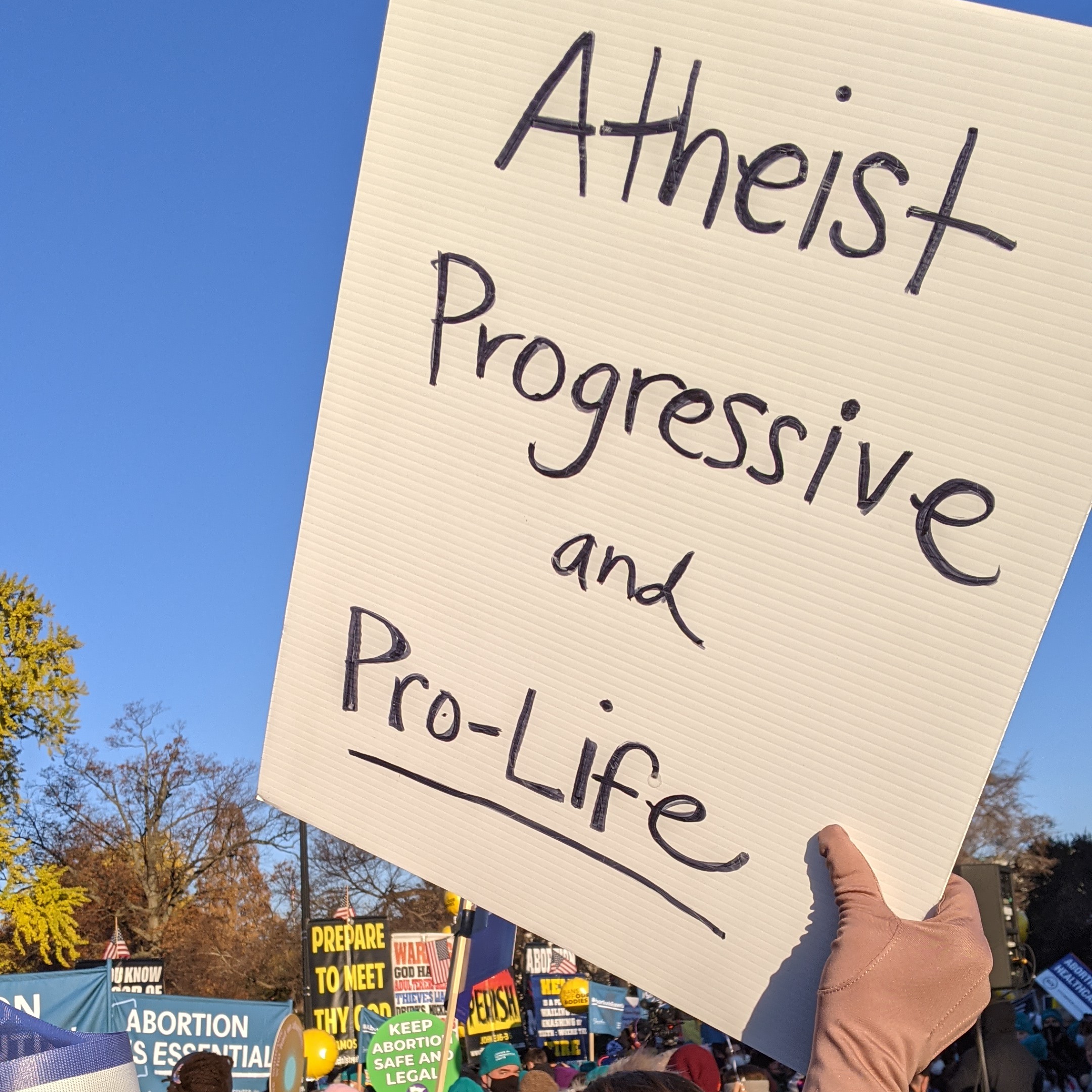Is belief in God necessary for the pro-life cause to succeed?
A few months ago, the Human Life Review invited SPL to submit an essay responding to this prompt (emphasis added):
In the decades between Roe v. Wade and Dobbs, most prolifers believed that Americans were more or less opposed to legalized abortion on demand because a) this was the case in 1973; b) it was imposed on us from above by “raw judicial power,” rather than legislated; and c) surveys repeatedly showed substantial percentages of Americans being disquieted by abortion, especially when you got beyond the hard cases and the earliest weeks of pregnancy.
In the first year or so following Dobbs, prolifers got a reality check through legislative defeats even in some reddish and purple states. We can say (what is true) that massive amounts of pro-abortion money peddling scare-mongering lies played a role in such defeats. Still, it has become clear that even the non-blue states are less pro-life than many believed, particularly if we understand the term “pro-life” to include the willingness of people who would never have an abortion themselves to legally deny other women the right.
In light of this, pursuing legislative and judicial pro-life victories, while important and even necessary, seems clearly insufficient to transform American into a nation where the unborn are valued and protected by society. It seems that only a long-term campaign to convert minds and hearts not only to personally value human life from conception to natural death, but to acknowledge the objective value of the unborn’s life according to something like the “laws of Nature and of Nature’s God,” will suffice. In other words, for most people a conversion to belief in an objective morality that applies to everyone and therefore does not derive from political institutions or authorities but from a transcending authority—let’s say it, from God—is necessary for the pro-life cause to succeed nationally.
I wrote the following, which they published in their Spring 2025 edition.
It’s true that people who believe humans are made in the image of God have a compelling reason to value humans. It’s not true that belief in Imago Dei is necessary to value humans, including our prenatal children.
There are strong correlations between being a practicing Christian and opposing abortion, and likewise between being atheist and being pro-choice. According to Pew Research, Catholics who attend mass at least weekly are vastly more likely to say abortion should be illegal than those who attend less often. At the same time, 80% of those unaffiliated with religion (including 95% of atheists) say abortion should be legal in all or most cases.
Both Christians and atheists have argued these data indicate that belief in God is necessary to oppose abortion. I disagree.
I’m an atheist, and I oppose abortion. I’m also the Executive Director of Secular Pro-Life (SPL), an anti-abortion organization led by atheists and supported by people of a wide variety of religious backgrounds (atheist, agnostic, Wiccan, Catholic, Evangelical, Jewish, Buddhist, and many more).
I’ve been with SPL since its founding in 2009. In the ensuing years, countless non-religious people have told me their stories of moving from pro-choice to pro-life, all while remaining secular. SPL began publishing these testimonials once a month in our “Ask an Atheist” series. Examples:
As someone who has had a tough life and spent time in foster care, I was disturbed by pro-choicers making eugenicist arguments that ‘unwanted’ people like me would benefit from abortion. I still believe my life matters and I’m so thankful for the opportunity to be alive and experience the world.
Brandon, pro-life atheist
[I became anti-abortion with] my first pregnancy. The moment I felt him move and saw his little foot slide across my stomach, like a little ‘Hello my darling, hello my ragtime gal’ alien, I realized exactly what fetuses are. Before that I was mega pro-choice.
JW, pro-life atheist
I started to be pro-life when I was a theist. As I grew less and less convinced of anything supernatural, I became more convinced of my pro-life stance. Abortion indisputably kills a living human and I don’t believe it’s justified homicide whatsoever.
Dylan, pro-life atheist
My wife and I lost our first child due to a miscarriage at 15 weeks. Up until this point, I had been pro-choice, not really giving much thought to when life truly began. This all changed for me when the doctor came to me and asked if I wanted to hold my son to say goodbye.
Ryan, pro-life agnostic
Over the last few years, I’ve moved from being neutral or nominally pro-choice to being anti-abortion, in part due to a relationship with a strongly pro-life [atheist] friend who got me thinking about the issue.
Jesse, pro-life atheist
Over the years, many Christians have expressed curiosity and confusion when I talk about atheists who oppose abortion. They often assume atheists think morality is subjective and further assume that people who think morality is subjective have no strong reasons to oppose abortion. Both of these assumptions are mistakes.
First, many non-religious people think morality is objective. Philosophers such as Erik Wielenberg, Shelly Kagan, and Michael Huemer, among others, have all argued for non-theistic moral realism. It is a mistake to assume non-religious people, by definition, believe morality is subjective.
[Read more – “Where do atheists think human rights come from?”]
We can see this perspective within the abortion debate. About 1 in 5 non-religious people say abortion should be illegal in most or all cases, suggesting they oppose abortion not only personally but politically. The other 4 in 5 often view abortion itself as a human right, specifically as the manifestation of the right to control who can access and use our bodies. They typically defend bodily autonomy not as a subjective ideal but as an objective moral precept.
Second, even people who think morality is subjective still usually come to the conclusion that human beings have value and their rights should be protected by law and societal norms. We can see this when we look outside the abortion debate to other human rights issues. For example, non-religious people regularly defend politics and policy supporting people who are LGBT, immigrants, or racial minorities.
Subjective morality is the idea that values are based on individual or cultural perspectives; it doesn’t require believing all actions are permissible. We don’t have to persuade people to believe in objective morality in order to get them to oppose abortion. We need only relate opposition to abortion to the values they already hold dear.
The pro-life movement does need to convert more hearts and minds. We want all people to value embryos as our prenatal children. But we don’t have to convince others to believe in God to believe the pro-life message. Prioritizing religious conversion centers Christian framings in the abortion debate, which can sometimes help but often backfires. A more effective approach is to understand pro-choice audiences—their language, priorities, and perspectives—and communicate pro-life messages within those contexts.
This is where non-traditional pro-lifers (those who passionately oppose abortion but deviate from Christianity or political conservativism) can serve as translators. We’re a key resource: the ambassadors for the pro-life perspective to social circles the larger movement rarely connects with.
At SPL we have found that discussions of post-viability abortion, early fetal development, abortion coercion, and grief over miscarriage are all points of entry into a broader conversation. Framing the debate around equal access to motherhood, opposition to medical ableism, and the promotion of equality and nonviolence can also give people pause.
There are many paths that lead people to oppose abortion. We just need to invite them to take a few steps down the nearest one.
If you appreciate our work and would like to help, one of the most effective ways to do so is to become a monthly donor. You can also give a one time donation here or volunteer with us here.



